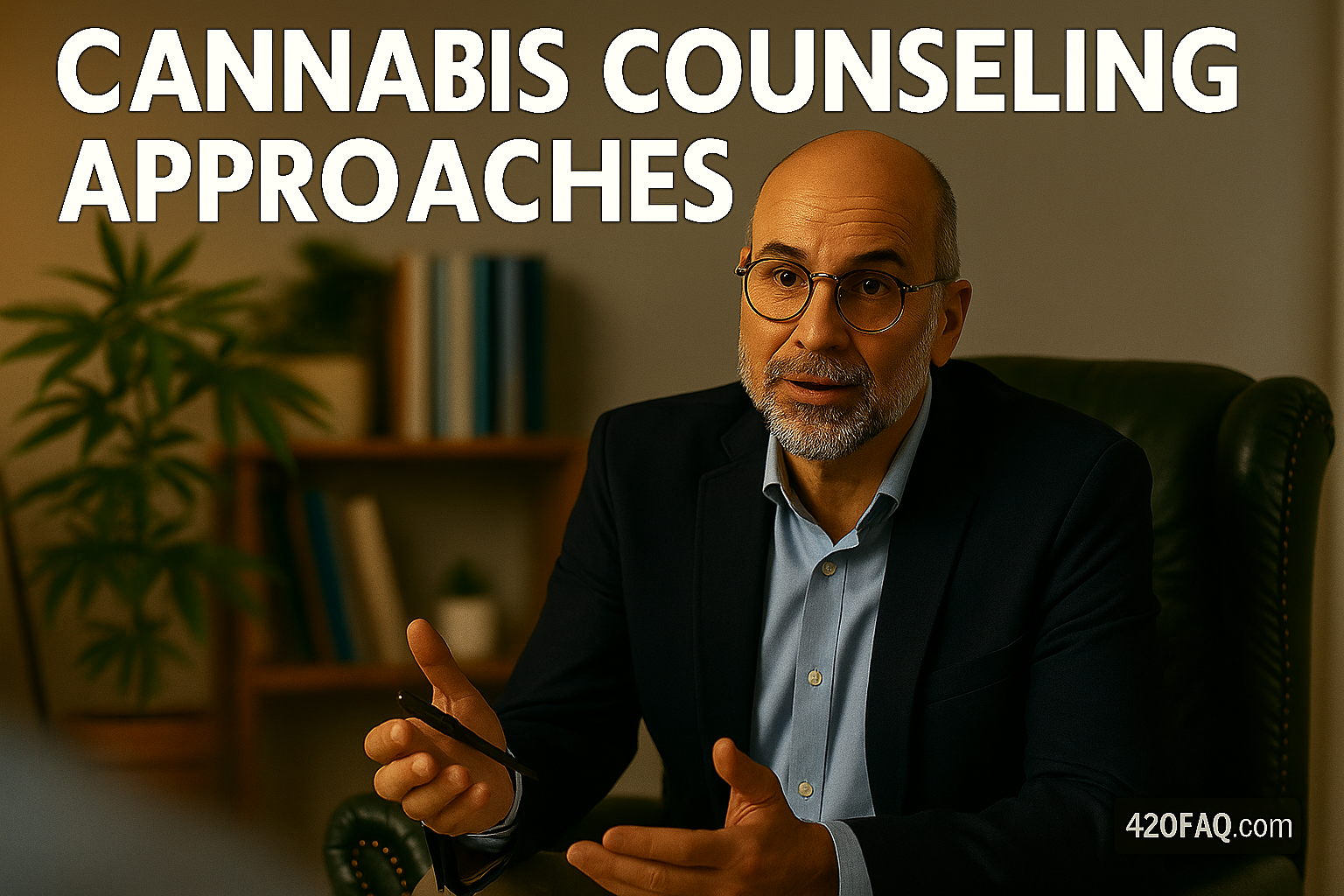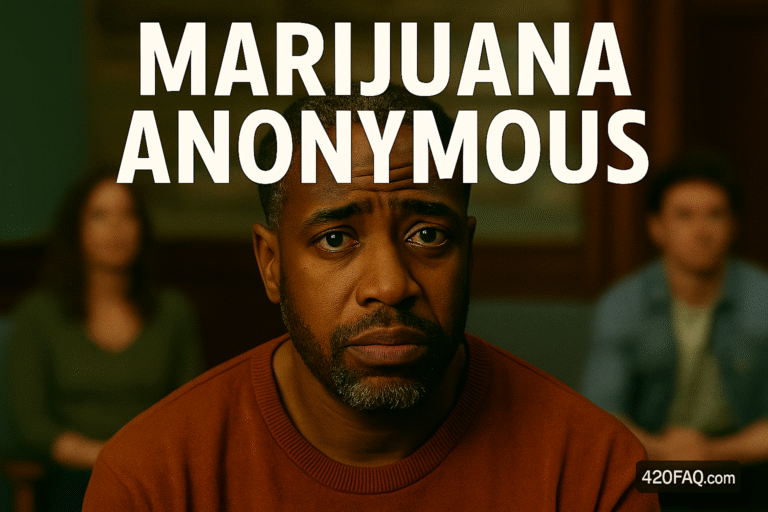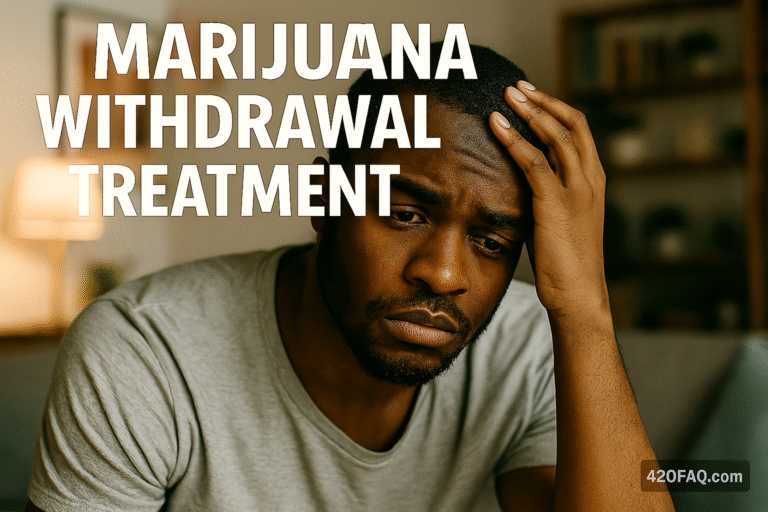
Cannabis Counseling Approaches: Comprehensive Therapeutic Methods for Cannabis Users
The evolving landscape of mental health treatment has brought cannabis counseling approaches to the forefront of modern therapeutic practice. As cannabis use becomes increasingly accepted for both medical and recreational purposes, mental health professionals are developing specialized counseling methods that address the unique needs of cannabis users. These cannabis counseling approaches represent a sophisticated understanding of how traditional therapeutic modalities can be adapted and enhanced to work effectively with individuals who use cannabis as part of their wellness or treatment regimens.
Understanding Cannabis Counseling Approaches
Cannabis counseling approaches encompass a range of therapeutic methods specifically designed to work with individuals who use cannabis, whether for medical reasons, recreational purposes, or those seeking to modify their relationship with cannabis. These approaches differ significantly from traditional substance abuse counseling by recognizing cannabis’s therapeutic potential while addressing any problematic use patterns that may emerge.
Unlike conventional addiction counseling that typically focuses on abstinence, cannabis counseling approaches often emphasize harm reduction, mindful use, and integration of cannabis use with broader mental health and wellness goals. These methods acknowledge that cannabis can serve legitimate therapeutic functions while helping individuals optimize their use patterns for maximum benefit and minimal risk.
Cannabis counseling approaches are grounded in evidence-based therapeutic modalities that have been adapted to address the specific psychological, behavioral, and social aspects of cannabis use. These approaches recognize that cannabis users represent a diverse population with varying goals, from those seeking to reduce problematic use to those wanting to optimize therapeutic benefits.
The foundation of effective cannabis counseling approaches lies in understanding the complex relationship between cannabis use and mental health. Counselors using these approaches must comprehend how cannabis affects mood, anxiety, cognition, and behavior, while recognizing individual variations in response and therapeutic goals.
Cognitive Behavioral Therapy for Cannabis Users
Cognitive Behavioral Therapy (CBT) represents one of the most widely researched and effective cannabis counseling approaches. CBT for cannabis users focuses on identifying and modifying thought patterns and behaviors related to cannabis use while developing healthier coping strategies and decision-making skills.
Cannabis-specific CBT helps individuals recognize triggers for problematic cannabis use, develop alternative coping strategies, and modify distorted thinking patterns that may lead to excessive or inappropriate cannabis consumption. This approach teaches clients to identify high-risk situations and develop specific strategies for managing cravings or urges to use cannabis in ways that conflict with their goals.
The cognitive component of cannabis CBT involves examining beliefs and attitudes about cannabis use, challenging unrealistic expectations about cannabis effects, and developing more balanced perspectives on the role of cannabis in one’s life. Clients learn to recognize cognitive distortions such as all-or-nothing thinking about cannabis use and develop more nuanced understanding of their relationship with cannabis.
Behavioral interventions in cannabis CBT include activity scheduling, behavioral experiments, and skills training for managing cannabis use in social situations. Clients learn practical strategies for controlling use, such as limiting access to cannabis, changing use environments, and developing alternative activities that provide similar benefits to cannabis use.
Cannabis CBT also addresses the relationship between cannabis use and mental health symptoms, helping clients understand how their use patterns may affect anxiety, depression, or other conditions. This understanding enables more informed decision-making about when and how to use cannabis therapeutically versus recreationally.
Motivational Interviewing in Cannabis Counseling
Motivational Interviewing (MI) has proven particularly effective as a cannabis counseling approach because it meets clients where they are in their relationship with cannabis rather than imposing external goals or judgments. MI recognizes that individuals may have ambivalent feelings about their cannabis use and works to explore and resolve this ambivalence.
Cannabis-focused MI helps clients explore their motivations for using cannabis, examine both positive and negative consequences of their use patterns, and develop intrinsic motivation for change when appropriate. This approach avoids confrontational tactics that might create resistance and instead uses collaborative exploration to help clients reach their own conclusions about their cannabis use.
The MI approach to cannabis counseling emphasizes client autonomy and self-determination, recognizing that individuals are the experts on their own experiences and goals. Counselors using MI with cannabis users focus on eliciting change talk while exploring the client’s values, goals, and priorities related to cannabis use.
Specific MI techniques for cannabis counseling include exploring decisional balance (pros and cons of cannabis use), examining importance and confidence for change, and helping clients envision their preferred future relationship with cannabis. These techniques help clients develop clarity about their goals and motivation for modifying their cannabis use patterns.
MI is particularly effective for clients who are ambivalent about their cannabis use or who have experienced pressure from others to change their relationship with cannabis. This approach helps clients develop internal motivation rather than responding to external pressure, leading to more sustainable changes in cannabis use patterns.
Acceptance and Commitment Therapy for Cannabis Issues
Acceptance and Commitment Therapy (ACT) offers unique advantages as a cannabis counseling approach by focusing on psychological flexibility rather than symptom reduction or behavior elimination. ACT helps cannabis users develop more flexible relationships with their thoughts, feelings, and behaviors related to cannabis use.
Cannabis-focused ACT emphasizes values clarification, helping clients identify what truly matters to them and examine how their cannabis use aligns with or conflicts with these values. This approach recognizes that cannabis use may serve important functions while helping clients ensure their use patterns support rather than interfere with their valued life directions.
The acceptance component of ACT for cannabis users involves developing willingness to experience uncomfortable thoughts, feelings, and sensations without automatically turning to cannabis for relief. Clients learn mindfulness skills and acceptance strategies that reduce the compulsive quality of cannabis use while maintaining its therapeutic benefits.
Commitment processes in cannabis ACT focus on helping clients commit to behavior patterns that align with their values, even when experiencing urges to use cannabis in ways that conflict with their goals. This approach emphasizes behavioral flexibility and response choice rather than rigid rules about cannabis use.
ACT’s emphasis on mindfulness makes it particularly suitable for cannabis users who want to develop more conscious and intentional relationships with cannabis. Clients learn to use cannabis mindfully, paying attention to their motivations, expectations, and outcomes while developing greater awareness of their use patterns.
Harm Reduction Counseling Approaches
Harm reduction represents a fundamental cannabis counseling approach that focuses on reducing negative consequences of cannabis use rather than requiring abstinence. This pragmatic approach recognizes that some individuals will continue using cannabis and aims to help them do so as safely and beneficially as possible.
Cannabis harm reduction counseling includes education about safer use practices, such as choosing appropriate consumption methods, understanding dosing principles, and avoiding high-risk combinations with other substances. Counselors help clients develop strategies for minimizing potential negative consequences while maximizing therapeutic benefits.
This approach addresses practical aspects of cannabis use including strain selection, timing of use, setting considerations, and integration with other medications or treatments. Harm reduction counseling helps clients make informed decisions about their cannabis use based on accurate information and personal goals rather than fear-based messaging.
Social harm reduction aspects include helping clients navigate employment concerns, legal considerations, and relationship impacts of cannabis use. Counselors using harm reduction approaches help clients develop strategies for managing these practical challenges while maintaining their chosen relationship with cannabis.
Harm reduction cannabis counseling also addresses potential health risks including respiratory effects from smoking, cognitive impacts from heavy use, and interactions with mental health conditions. This information empowers clients to make educated decisions about their use patterns and seek appropriate modifications when necessary.
Mindfulness-Based Cannabis Counseling
Mindfulness-based approaches to cannabis counseling help individuals develop greater awareness and intentionality in their relationship with cannabis. These approaches combine traditional mindfulness practices with specific applications to cannabis use patterns and decision-making.
Mindful cannabis use involves paying careful attention to motivations for use, bodily sensations during and after consumption, emotional states that trigger cannabis use, and the actual effects experienced versus expected effects. This increased awareness helps clients make more conscious choices about their cannabis use.
Mindfulness-based cannabis counseling teaches specific meditation practices that can be used before, during, or after cannabis use to enhance therapeutic benefits and reduce automatic or compulsive use patterns. These practices help clients develop greater emotional regulation skills that may reduce reliance on cannabis for mood management.
Body awareness practices help cannabis users tune into physical sensations and recognize early signs of overconsumption or negative effects. This enhanced body awareness enables more precise dosing and better recognition of optimal use patterns for individual therapeutic goals.
Mindfulness approaches to cannabis counseling also emphasize present-moment awareness, helping clients recognize when they are using cannabis to avoid or escape current experiences versus when they are using it to enhance engagement with present-moment activities or sensations.
Trauma-Informed Cannabis Counseling
Trauma-informed cannabis counseling approaches recognize that many cannabis users have histories of trauma and may be using cannabis as a form of self-medication for trauma-related symptoms. These approaches integrate trauma understanding with cannabis-specific interventions for comprehensive treatment.
Cannabis is commonly used by trauma survivors to manage symptoms such as hypervigilance, intrusive thoughts, sleep disturbances, and emotional numbness. Trauma-informed counseling approaches help clients understand these connections while developing more comprehensive trauma recovery strategies that may include appropriate cannabis use.
These approaches emphasize safety, trustworthiness, and collaboration in the therapeutic relationship, recognizing that trauma survivors may be particularly sensitive to power dynamics and control issues. Counselors using trauma-informed cannabis approaches avoid judgment about cannabis use while helping clients evaluate whether their use patterns support or interfere with trauma recovery.
Trauma-informed cannabis counseling includes psychoeducation about trauma’s effects on the nervous system and how cannabis may provide relief for specific trauma symptoms. This understanding helps clients make informed decisions about using cannabis as part of their trauma recovery toolkit.
Integration with evidence-based trauma treatments such as EMDR, trauma-focused CBT, or somatic approaches is an important aspect of trauma-informed cannabis counseling. Counselors help clients coordinate their cannabis use with trauma therapy to optimize healing outcomes.
Group Cannabis Counseling Approaches
Group counseling approaches for cannabis users provide unique benefits including peer support, shared problem-solving, and reduced isolation. Cannabis-focused groups bring together individuals with similar interests and challenges related to cannabis use for mutual support and learning.
Cannabis support groups may focus on various goals including optimizing medical cannabis use, reducing problematic recreational use, or developing mindful consumption practices. These groups provide safe spaces for discussing cannabis-related concerns without judgment or pressure to abstain.
Educational groups focus on providing accurate information about cannabis effects, therapeutic applications, legal considerations, and safety practices. These groups help participants make informed decisions about their cannabis use based on scientific evidence rather than misinformation or stigma.
Process-oriented cannabis groups emphasize interpersonal learning and emotional support, helping participants explore their relationships with cannabis in the context of broader life themes such as coping with stress, managing mental health conditions, or navigating major life transitions.
Skill-building groups teach specific techniques for managing cannabis use including mindfulness practices, craving management strategies, communication skills for discussing cannabis use with family or healthcare providers, and practical approaches to optimizing therapeutic benefits.
Cannabis Counseling for Specific Populations
Different populations require specialized cannabis counseling approaches that address unique needs, circumstances, and challenges related to cannabis use. Counselors must understand how age, gender, cultural background, and medical conditions affect appropriate cannabis counseling interventions.
Adolescent cannabis counseling requires particular sensitivity to developmental considerations, family dynamics, and educational impacts. These approaches often involve family therapy components and coordination with school systems while addressing the specific risks and benefits of cannabis use during adolescence.
Older adult cannabis counseling addresses concerns such as medication interactions, age-related health conditions, and changing metabolism that affects cannabis response. These approaches often focus on medical cannabis applications and coordination with healthcare providers managing multiple health conditions.
Veterans represent a special population in cannabis counseling, often using cannabis for PTSD, chronic pain, and other service-connected conditions. Cannabis counseling for veterans addresses military culture considerations, coordination with VA healthcare, and specific trauma-related applications of cannabis use.
Women-focused cannabis counseling may address hormonal considerations, pregnancy and breastfeeding concerns, and gender-specific applications of cannabis for conditions such as menstrual disorders or menopause symptoms.
Integration with Medical Cannabis Programs
Cannabis counseling approaches increasingly need to integrate with medical cannabis programs, working collaboratively with physicians, nurses, and other healthcare providers involved in medical marijuana treatment. This integration ensures comprehensive care that addresses both medical and psychological aspects of cannabis use.
Counselors working within medical cannabis programs help patients optimize their therapeutic use of cannabis while addressing psychological barriers to effective treatment, such as stigma, fear of dependence, or unrealistic expectations about cannabis effects.
Psychological support for medical cannabis patients includes helping individuals adjust to cannabis as medicine, navigate family and social reactions to their medical cannabis use, and develop effective communication with healthcare providers about their cannabis treatment experiences.
Counselors in medical cannabis settings also help patients distinguish between therapeutic and non-therapeutic use patterns, develop healthy relationships with cannabis as medicine, and integrate cannabis treatment with other medical and psychological interventions.
Care coordination with medical providers involves communicating about patient progress, treatment adherence, psychological factors affecting cannabis response, and recommendations for optimizing therapeutic outcomes while minimizing psychological side effects.
Technology-Enhanced Cannabis Counseling
Modern cannabis counseling approaches increasingly incorporate technology tools to enhance treatment delivery, monitoring, and outcomes. These technologies include mobile apps, online platforms, virtual reality applications, and digital therapeutic tools specifically designed for cannabis users.
Smartphone applications can help cannabis users track their consumption patterns, mood changes, symptom relief, and side effects, providing valuable data for counseling sessions. These tools enable more precise monitoring of cannabis use patterns and their relationships to mental health symptoms and treatment goals.
Online counseling platforms make cannabis-knowledgeable counselors more accessible to individuals in areas where specialized providers may not be available locally. Telehealth approaches to cannabis counseling have proven particularly valuable during the COVID-19 pandemic and continue to expand access to specialized services.
Virtual reality applications are being developed to provide controlled environments for practicing cannabis use scenarios, coping skills, or exposure therapy for individuals with cannabis-related anxiety or other concerns. These immersive technologies offer new possibilities for experiential learning and skill development.
Digital therapeutic tools include guided meditation apps, educational platforms, and interactive programs specifically designed for cannabis users seeking to optimize their relationship with cannabis. These tools can supplement traditional counseling approaches and provide between-session support.
Measuring Outcomes in Cannabis Counseling
Effective cannabis counseling approaches require appropriate outcome measures that capture the complex goals and benefits associated with cannabis-focused treatment. Traditional addiction treatment outcomes may not be appropriate for many cannabis users whose goals involve optimization rather than cessation.
Quality of life measures are often more relevant for cannabis counseling outcomes than traditional abstinence-based metrics. These measures assess improvements in areas such as sleep quality, anxiety levels, social functioning, and overall life satisfaction that may result from more intentional cannabis use.
Cannabis-specific outcome measures include instruments that assess problematic use patterns, cannabis use motives, cannabis-related consequences, and cannabis use self-efficacy. These specialized tools provide more nuanced understanding of treatment progress than general substance use measures.
Functional outcomes focus on improvements in areas such as work performance, relationship quality, physical health, and achievement of personal goals. These measures recognize that cannabis counseling success may involve maintaining cannabis use while improving overall functioning and well-being.
Harm reduction outcome measures assess reductions in negative consequences of cannabis use rather than reductions in use itself. These measures might include decreased legal problems, improved respiratory health, better medication adherence, or enhanced safety practices.
Training and Competency in Cannabis Counseling
Mental health professionals providing cannabis counseling approaches need specialized training that goes beyond traditional substance abuse counseling education. This training must address the unique aspects of cannabis use, therapeutic applications, and evidence-based interventions specific to cannabis users.
Core competencies for cannabis counseling include understanding cannabis pharmacology, therapeutic applications, legal considerations, and current research findings. Counselors must also understand the differences between medical and recreational cannabis use and how these differences affect appropriate counseling approaches.
Clinical training in cannabis counseling requires supervised experience working with diverse cannabis-using populations, including medical patients, recreational users seeking optimization, and individuals with problematic use patterns. This experiential learning helps counselors develop nuanced understanding of cannabis-related issues.
Continuing education in cannabis counseling is essential given the rapidly evolving research base, changing legal landscape, and emerging treatment approaches. Counselors must stay current with new findings and adapt their practice accordingly to provide optimal client care.
Professional organizations are developing standards and certification programs for cannabis counseling competency, helping ensure that providers have appropriate knowledge and skills to work effectively with cannabis-using populations.
Ethical Considerations in Cannabis Counseling
Cannabis counseling approaches raise unique ethical considerations that counselors must navigate carefully. These considerations include issues related to client autonomy, harm reduction versus abstinence-based approaches, legal compliance, and professional boundaries in a rapidly evolving field.
Client autonomy represents a fundamental ethical principle in cannabis counseling, recognizing individuals’ rights to make informed decisions about their cannabis use based on their own values, goals, and circumstances. Counselors must balance providing guidance with respecting client self-determination.
Confidentiality considerations in cannabis counseling may be complicated by legal issues, especially in jurisdictions where cannabis remains illegal or where clients face employment consequences for cannabis use. Counselors must clearly communicate the limits of confidentiality while protecting client privacy to the fullest extent possible.
Competence requirements obligate counselors to seek appropriate training and supervision before providing cannabis counseling services. Given the specialized knowledge required, counselors must honestly assess their competency and refer clients to more qualified providers when necessary.
Dual relationships and boundary issues may arise when counselors have personal experience with cannabis use or when working in communities where cannabis use is common. Clear professional boundaries must be maintained while using any personal experience appropriately to enhance therapeutic relationships.
Future Directions in Cannabis Counseling
Cannabis counseling approaches continue to evolve as research advances, legal landscapes change, and clinical experience accumulates. Future developments are likely to include more personalized approaches based on genetic factors, improved integration with medical cannabis programs, and enhanced technology-assisted interventions.
Precision medicine approaches to cannabis counseling may incorporate genetic testing, biomarker analysis, and other personalized factors to optimize counseling interventions and cannabis recommendations for individual clients. This personalized approach could enhance treatment outcomes while minimizing trial-and-error approaches.
Integration with mainstream mental health care represents an important future direction, with cannabis counseling approaches becoming more widely available and accepted within traditional mental health settings. This integration will require continued education of mental health professionals and adaptation of existing treatment systems.
Research on cannabis counseling effectiveness continues to expand, with larger studies and longer follow-up periods providing better evidence for various approaches. This research base will inform the development of best practices and treatment guidelines for cannabis counseling.
Policy changes at federal and state levels will continue to affect the practice of cannabis counseling, potentially expanding opportunities for specialized services while creating new regulatory considerations that counselors must navigate.
Conclusion
Cannabis counseling approaches represent a sophisticated evolution in mental health treatment that recognizes the complex realities of cannabis use in modern society. These approaches move beyond traditional addiction models to embrace harm reduction, therapeutic optimization, and client-centered care that meets individuals where they are in their relationship with cannabis.
The diversity of cannabis counseling approaches reflects the heterogeneous nature of cannabis users and their varied goals, from those seeking to optimize medical cannabis benefits to individuals wanting to develop more mindful recreational use patterns. Effective cannabis counseling requires specialized knowledge, skills, and attitudes that differ significantly from traditional substance abuse counseling.
As cannabis continues to gain acceptance and legal status expands, the demand for qualified cannabis counselors will continue to grow. Mental health professionals who develop expertise in cannabis counseling approaches will be well-positioned to serve this underserved population and contribute to the evolution of evidence-based cannabis-informed mental health care.
The future of cannabis counseling lies in continued research, improved training programs, and integration with mainstream mental health services. These developments will ensure that individuals who use cannabis have access to appropriate, effective, and evidence-based counseling services that support their mental health and wellness goals while respecting their autonomy and treatment preferences.





